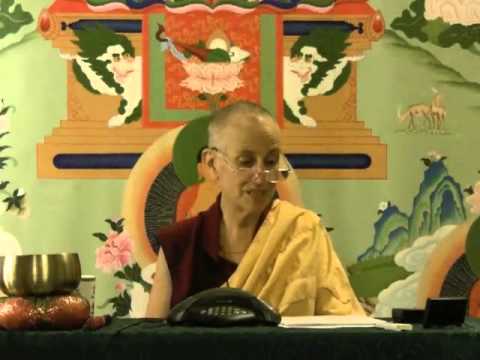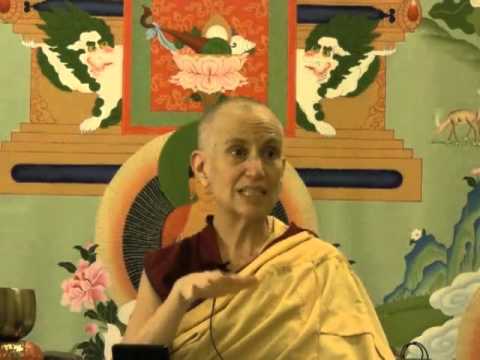Four opponent powers
Teachings on Chapter 2 of Shantideva’s A Guide to the Bodhisattva’s Way of Life based on Gyaltsab Je's commentary given by Khensur Wangdak Rinpoche at Sravasti Abbey November 24-26, 2010.
- First two chapters are preliminaries, primary subject of generating the mind for supreme enlightenment
- Methods for generating bodhicitta: seven point cause-and-effect instructions, exchanging and equalizing self with others
- One must develop compassion first for own self and then for others, based on four noble truths
- Second chapter has four parts related to confession of negativities by having four powers:
- Application of eradication (regret)
- Application of antidotes
- Power of refraining from wrongdoings
- Power of reliance
- General explanation, if we don’t purify negativities, we will experience the results of rebirths in lower realms
01 Shantideva’s Guide to a Bodhisattava’s Way of Life 2010 (download)
Khensur Wangdak Rinpoche
Khensur Rinpoche was born in 1934 in Kham, eastern Tibet. He pursued the traditional studies of a monk and joined the great Drepung University near Lhasa until the 1959 exodus from Tibet. As a refugee in India, he continued to study intensively, preserving the ancient traditions of Tibetan Buddhism at re-established universities, finally earning the highest academic honors. He was then invited to Namgyal Monastic University, the seat of His Holiness the Fourteenth Dalai Lama, where he served as abbott. In 1995, the Dalai Lama then appointed Rinpoche as abbott and senior teacher at Namgyal monastery in Ithaca, New York. Most recently, he taught at Chenresig Tibetan Buddhist Center in Connecticut. Khensur Rinpoche has made several visits to Sravasti Abbey and the community is honored to have received an online teaching from him shortly before he passed in March 2022.


